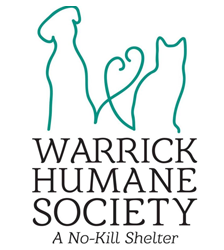WARRICK HUMANE SOCIETY PRESENTS “LOW-COST VACCINE CLINIC†ON JULY 18, 2023.
Newburgh, IN – July 15, 2013
Warrick Humane Society is hosting a Low-Cost Vaccination Clinic open to the public on Tuesday, July 18, 2023, from 9 AM to 12 PM (or later if pets are still being seen). Registration opens at 8 AM and registration is limited to the first 50 dogs or cats registered. Registration for the clinic is first come, first serve and will end at 11 AM unless we register 50 pets prior to 11 AM. A registration table will be set up on the patio of the Home Away Pet Spa next to the shelter.Â
Please expect a potentially long wait and plan your day accordingly. We can only see domesticated dogs and cats. No feral animals. For the safety of your pet, all dogs MUST be on a leash and cats MUST be in a carrier. Cash and credit cards are accepted for payment.Â
Pricing for services:
Rabies – $17
DA2PP – $17
Bordetella – $15
Heartworm Test – $22
FVRCP – $17
FeLV/FIV test – $25
Microchip – $20
Flea Treatment – $10-$20
Dewormer – $5-$15
For more information contact:
Jessie Voyles
Warrick Humane Society Communications Coordinator
812-858-1132
WHSCommunicates@gmail.com Â
About Warrick Humane Society
Warrick Humane Society, a no-kill shelter located in Newburgh, Indiana, was founded in 1983 by a handful of dedicated volunteers who rescued lost, injured, and neglected animals. Since WHS opened its building in 1997 and began actively working with Animal Control agencies and other rescue organizations, WHS has saved thousands of animals and placed them in loving homes. Warrick Humane Society is a 501(c)(3) no-kill rescue dedicated to improving companion animals’ lives. WHS does not receive any funding from taxes or any national organizations. WHS is funded entirely by individual and corporate donations, bequests, grants, and fundraising events. Because all animals adopted by WHS are spayed/neutered, vaccinated, treated for parasites, and microchipped as well as receiving any other special care they may need, finding enough funding is always a challenge.Â





